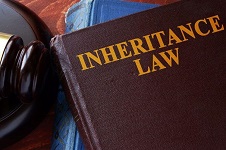Foreign Ownership and Inheritance

Foreign Ownership and Inheritance
Foreign Ownership and Inheritance who meet the requirements for foreign ownership of an apartment unit under section 19 get a personal, non-transferable right to the unit. The unit’s ownership is regulated by condominium restrictions and is not freely transferable between foreigners.
Within the condominium’s foreign ownership quota, the following foreign natural or juristic individuals are entitled or qualified to register ownership of a condo unit:
- Foreigners are allowed to live in the Kingdom under Immigration legislation
- Foreigners allowed to invest in the Kingdom under Investment law
- Juristic persons as defined in Sections 97 and 98 of the Land Code and who have been registered as such under Thai law;
- Juristic persons who are abroad and have secured a foreign business license (section 4 foreign business act)
Foreigners or juristic people are recognized as aliens by law who have brought foreign currency into the Kingdom or withdrawn money from a Thai baht account of a person who has a residency outside the Kingdom or withdrawn money from a foreign currency account.
If the foreigner meets the requirements and submits documentation, such as foreign currency exchange transaction paperwork, and the unit falls within the foreign ownership quota, foreign ownership of the unit can be registered at a Land Department branch or provincial office.
The condominium act provides for the inheritance of foreign ownership.
A Foreign Ownership and Inheritance obtains a personal non-transferable right of foreign ownership under section 19 above. Any foreign successor to the condo (by inheritance, sale, or gift) must re-qualify for foreign ownership. The simple fact that a foreign heir inherits a foreign-owned property does not qualify them for foreign ownership registration under Thai condo regulations. In addition, a foreign heir who inherited a condo in Thailand must either qualify for ownership under Section 19 of the condominium statute or sell the unit within one year of the date of Foreign Ownership and Inheritance.
Section 19, paragraph 8: In the following cases, a foreign natural or legal person as defined in section 19 (qualified) may dispose of an apartment:
(e.g., a gift from foreigner to foreigner), as the case may be, and when the apartment already held by foreigners or juristic persons stipulated in section 19 exceeds the ratio prescribed in the first paragraph of section 19 bis.
Paragraph 7 of Section 19 and foreign ownership
Foreign Ownership and Inheritance nationals who get a condo unit but do not qualify for foreign ownership under section 19 first paragraph are covered by section 19, paragraph 7.
The legatee or otherwise, as the case may be, shall notify the Competent Official (land office) in writing within sixty days of the date of acquisition of ownership of the apartment, and shall dispose of such apartment within a period of not exceeding one year from the date of acquisition of ownership of the apartment,’ If no decision is reached within the specified time frame.
What does it mean to have a “step-up” in cost base at death?
The income tax basis of inherited assets is adjusted to the fair market value of the assets on the decedent’s death date under current US tax legislation (or six months later, if elected). The “step-up” in basis at death is what it’s called. Receiving assets at their fair market value can be a huge help, especially if the value of the assets has changed dramatically after purchase or if the original purchase price is unclear. Stocks, private business ownership, real estate, collectibles, and other valuables are all examples of this.
Is there a Cost Basis Step-Up for Inherited Foreign Assets for US Tax Purposes?
Foreign Ownership and Inheritance When receiving an inheritance from outside the United States, another prevalent question is about the U.S. cost basis and getting a step-up in basis on foreign assets owned by a non-U.S. person. When assets are eventually sold, knowing the cost basis in the United States is critical, since gains may be taxed in the United States. When it comes to inherited non-U.S. assets, there are a few intricacies to consider.
Inheriting Foreign Assets and Bringing Them to the United States

Foreign Ownership and Inheritance
Receiving a Foreign Ownership and Inheritance from a foreign country can put people in a great position to achieve their financial goals. However, as a U.S. beneficiary of a foreign inheritance, it is critical to design a strategy for keeping the foreign assets (correct U.S. tax reporting) or transferring them to the United States (if possible). The timing and implementation of these foreign asset movements may have ramifications.
A prevalent misunderstanding is that international stock investments need to be held in a non-US stock account. If continued ownership of foreign publicly traded corporations is essential, these shares will almost certainly be transferred to a US custodian for ease of administration and tax reporting. US
Read more: Locating missing or unknown heirs